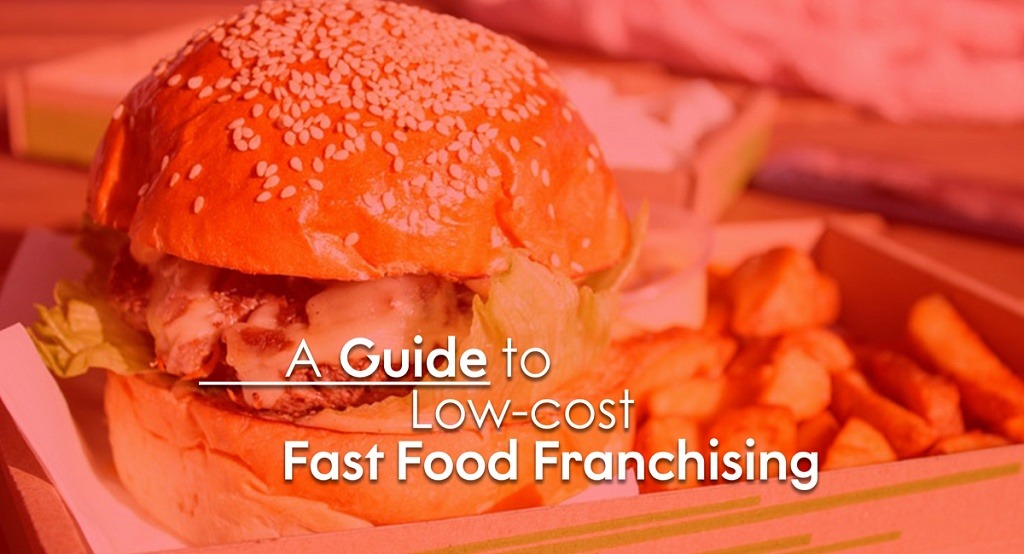
The restaurant- and fast food industry is one of the top three franchising sectors that franchisees invest in, says Riaan Fouche, the Chief Operations Officer at FNB Business.
According to him, the fast food franchising is a great opportunity for smaller and upcoming businesses because of the low set-up costs.
Here’s what you should keep into consideration if you want to set-up a fast food franchise business:
Franchise options
According to IOL, the sector consisted of 845 franchisors and over 40,000 franchisees in 2017. A report by BusinessTech report reveals that the sector employed about 343,000 people and generated sales of R587 billion. This equals 13.3% of the South Africa’s GDP.
The fast food franchise that generated the most revenue in 2017 was KFC with R8.71 billion in revenue, McDonald’s came in second with R4.34 billion, and third place went to Wimpy with just over R2 billion.
BusinessTech listed the following as popular, low-cost franchises that cost less than R2-million to open:
- Wimpy – between R1.9 million and R2.5 million, with an initial franchisee fee of R114,300 (excluding VAT).
- Steers – from R1.65 million excluding VAT, joining fee and contingency. Set up cost includes equipment, shopfitting, wet works, furniture and fixtures.
- Simply Asia – a sit-down restaurant: R1,500,000 (excluding VAT), Express Stores: R1,100,000 (excluding VAT).
- Anat – from R950,000 (excluding VAT).
- Something Fishy – an approximate setup cost of R850,000 (excluding VAT), and an initial franchise fee of R55,000 (also excluding VAT).
- Fish and Chip Co – the franchise is R699,000 and, you can expect to pay an initial joining and set up fee of R140,000.
- Kauai – you can expect set up costs of approximately R2 million (capital costs of setting a store up), excluding VAT for a retail store. A smaller ‘in motion’ store can be approximately R500,000 to R800,000 set up costs (excluding VAT).
- King Pie – has several store options: King Pie Store – R445,575.53; King Pie Express Unit – R287,051.553; King Pie Kiosk – R177,464.69; King Pie Trailer – R179,342.05; King Pie Tuc Tuc – R100,268.10
- Chip n Dip – the cheapest ‘Gazebo” option includes equipment, opening stock, signage and a once-off joining fee for R47,880. In comparison, you can get a mobile Chip n Dip station for R171,000.
- ChesaNyama – the franchise fee/ set up cost (excluding Extras): R10 000.00/ m2 (excl. VAT); and the Shop fitting/Electrical/Plumbing/Signage/Furniture & Design Fee, excludes council submissions for approvals costs R10 000.00 /m2 (excl. VAT).
Finances
- Set-up costs: Fouche says the set-up costs for a fast food franchise is between R800,000 to R2,7-million. He adds that the costs are depended on the brand.
- Funding: According to the Franchise Association of South Africa (Fasa), most franchisors will insist that you fund between 30 –50% of the complete investment from your own resources. Fasa warns that if repayments are big, it would place strain on your new business’ cash flow.
- Monthly fees: Laurette Pienaar, Nedbank’s national franchise manager, said to Moneyweb that besides the store’s set-up costs and joining fees, there are ongoing fees like monthly royalty fees, marketing fees (as a percentage of turnover) and often a volume-based fee. For example, ChesaNyama asks for a monthly royalty fee of 4% of turnover is payable to the franchisor and a monthly marketing fee of 2% of turnover. Pienaar adds that monthly operational costs will include staffing, and equipment and vehicle hire. ChesaNyama suggests that you make provision for working capital (to be used for Rental, Deposit and Salaries) of R80,000.
Equipment
According to the Entrepreneur Mag, the basic equipment you’ll need for a restaurant include:
- Shop fitting
- Kitchen equipment
- Refrigeration
- Storage
- Dining area (tables, chairs, high chairs etc)
- Crockery, cutlery, linens, and all the kitchen tools
- Signage
- Sound and Lighting
- A till system
- TVs (if you go that direction)
- And possibly a Point of Sale (POS) system that allows for the wait staff to be connected with the kitchen staff.
Legalities
Things you have to apply for include a business bank account, SARS Tax, and apply to have an inspection done by health and safety officials from the Department of Health.
Pienaar told Moneyweb that similar to the franchise agreement, franchisees are encouraged to seek legal advice prior to entering into a lease agreement and supplier agreements.
Documentation needed
- Disclosure profile document: It gives you the background of the franchise. “You’ll also get a list of franchisees who part of the franchise and you can call them up,” explains Fouche. With this document you can do the necessary research about the franchise.
- Franchise agreement: This document tells you what you are getting yourself into.
- Approval letter from the franchisor: It will be needed for when you apply for a loan at the bank.
- Personal details (for the bank loan application): This includes your personal details like the statement of assets and liabilities (or balance sheets), a business plan from their side, curriculum vitae of the individual (short), a comprehensive set up cost, and a cash flow projection for at least three years. The franchisor assists the franchisee with all of this.
Support and training available
Most franchisors provide ongoing support to their franchisees because they aim to improve customer satisfaction and uphold the brand- and product’s image and standards.
For example, according to the Spur Corp, there is a franchisee training programme which includes a variety of modules across all areas of operations, while the induction and training programmes ensure every franchisee is trained to the highest standards.


